Helen Sildna: How do the creative industries change Estonia?
- 11.02.2017
- 38711
Discussions about creative industries emerge here and there as well as the creative industries themselves. Usually there are talks about economic benefits that bring quick-moving startups based on creative thinking. Today we talk about the ability of creative thinking to change the urban space, to turn it into a huge playground. The music promoter, director of showcase festival Tallinn Music Week Helen Sildna – in exclusive interview for 34mag.
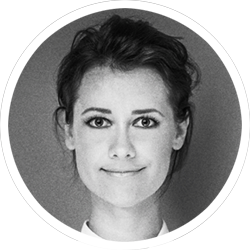
Helen Sildna, 39 years old.
She has been working in the music industry since 2000. In 2009, she founded her own promotion company Musiccase, which organized concerts Morrissey, Patti Smith, Air, Sigur Ros. Also in 2009, Helen established a showcase festival Tallinn Music Week, which has become one of the largest city festivals in the North-Baltic region. Helen is a member of the Estonian President Toomas Hendrik Ilves’ Think Tank. In 2015 she was nominated the "Citizen of the Year" in Estonia, and in 2016 was awarded with the Order of the White Star IV Class for her contribution to the development of Estonian music and civil society. Now, she and the team are preparing the ninth edition of Tallinn Music Week 2017.
Helen, at what stage the preparation of the festival is? What new cool things should we wait for on TMW 2017?
Just last Thursday we held the official TMW 2017 programme launch event, where we announced 237 bands, artists and music ensembles. It was the first biggest deadline to get the enormous work of finalizing all details to do with music programme as well as main venues and partners locked in. Now we are continuously working on conference and talks programme, our city space and arts concept, international guests, press and marketing activities. A lot still to be done.
The festival itself is a week-long celebration of arts and creativity taking over the whole city of Tallinn, so there are many details and programme parts involved. The programme includes music from all genres – from contemporary classical to world music, jazz, hip-hop, avant-garde and a new sensation for 2017 - a 24-hour rave in a former Soviet time Railway Station Pavilion. Venues are really diverse, from old beautiful theatres to cozy cafés, basement bars, design shops, industrial buildings and even abandoned garages, designed into pop-up bars with live music by interior design students.
Besides music there is a two-day conference, titled “Creative Impact”, discussing everything from Artificial Intelligence to industries of the future; an extensive food and restaurants programme, presenting Tallinn’s most talented chefs as well as home cooking dinners you can sign up for; a great arts and design programme, as well as urban space projects and outdoor stages in parks and courtyards. The festival takes over close to 100 locations and open spaces and every year it become more and more international, with 35 000 people visiting the events in 2016.
As the centre of Tallinn is conveniently concise, most venues and locations are in walking distance. With thousands of happy people moving around the city, it does create quite a special vibe as well. Meeting old or new friends around the globe on a street corner and figuring out together what to do next. It feels like for one long weekend the whole city becomes an exciting playground. More and more we find ourselves also playing around in the city space as well – turning deserted buildings or empty parts of town into happy festival sites through art projects and installations. Claiming the city to the citizens to feel good in it.
«The programme includes a new sensation for 2017 - a 24-hour rave in a former Soviet time Railway Station Pavilion»
Besides all the fun, we like to discuss some important topics as well. We feel that a festival can be a valuable communication tool and we are more and more conscious of the values we share. Diversity, equality and freedom of expression have always been part of our discussion, this year we are taking it seriously to address topics around sustainable development – awareness on responsible consumption and more opportunities for more. We really do think about the kind of impact we leave – on the creative community and with our audiences.
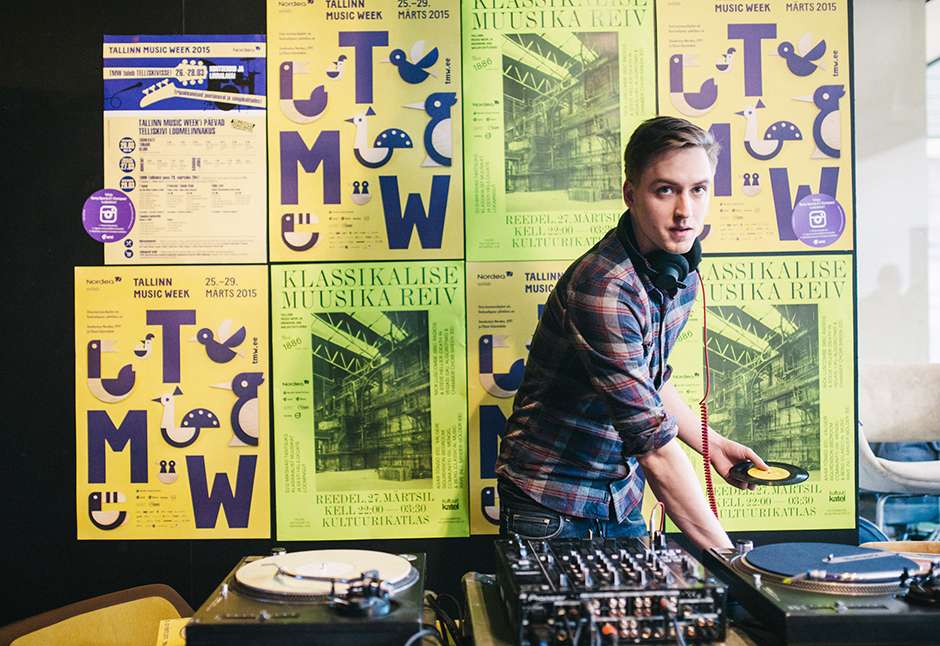
What topics are you going to raise at TMW Conference this year?
Our brand new President Kersti Kaljulaid will be opening up the conference on 31st March. Debates on topics like “post-truth world” versus “good quality is the new cool” and “the beginning of an end of the rock era“ will also lead to inevitable discussions about technology reshaping the structure of our jobs and speculations on Artificial Intelligence as the hottest producer on the future hit charts. There will be stories of human resilience and creative resourcefulness, as well as eye-opening presentations of scientific discoveries and new artistic expressions. As Estonia will take over the presidency of the European Union Council in the second half of 2017, topics like the future of Europe as well as the Digital Single Market will shape an essential part of the discussions.
All of these topics will be presented both with the conference programme and also the free TMW Talks sessions, held in cozy bars around the town.
Let's go deeper to the city. What was Tallinn in creative industry sense after Estonia gained independence? How has it been burgeoning further through 2000s till now?
Estonia is a small country, so when talking of Creative Industry developments it makes sense to look at the whole country, not just Tallinn. Thinking back at 1991, when we regained our independence, people found themselves in a totally new political and economic system, suddenly people had ownership over things, everything up to ourselves to work out. There was a large process of privatization and setting up private ownership. The mentality around things and “what it means to be an entrepreneur or an active citizen” changed dramatically. The same formula had to be brought in to the creative sector.As the history was in state-supported culture vs independent underground, so the same sort of reforms had to run through the culture and creative sector too.
The new thinking arrived at the creative sector a decade later. The reason why we talk about everyone’s right to freedom of self-expression relies on the same logic – it is not up to the Ministry of Culture of offer judgement of what is worthy or what is not – our cultural and creative policies should be directed towards more opportunities for more.
«I think people in general listen to music also differently from how they used to»
In 2009 Tallinn got the title to be the European Capital of Culture in 2011, this was the year when TMW was set up too. A great boost was given to creative thinking, creative sectors. A wise creative policy decision was made by starting investing into the creative industry development organizations – a lot of knowledge and opportunities have arrived at music, design, arts, film, architecture sectors through that.
TMW’s wide creative programming can exist thanks to this creative awakening in all the sectors. Our festival can showcase the talent that has been developed and supported, our festival can give it new tools and more visibility, more opportunities.
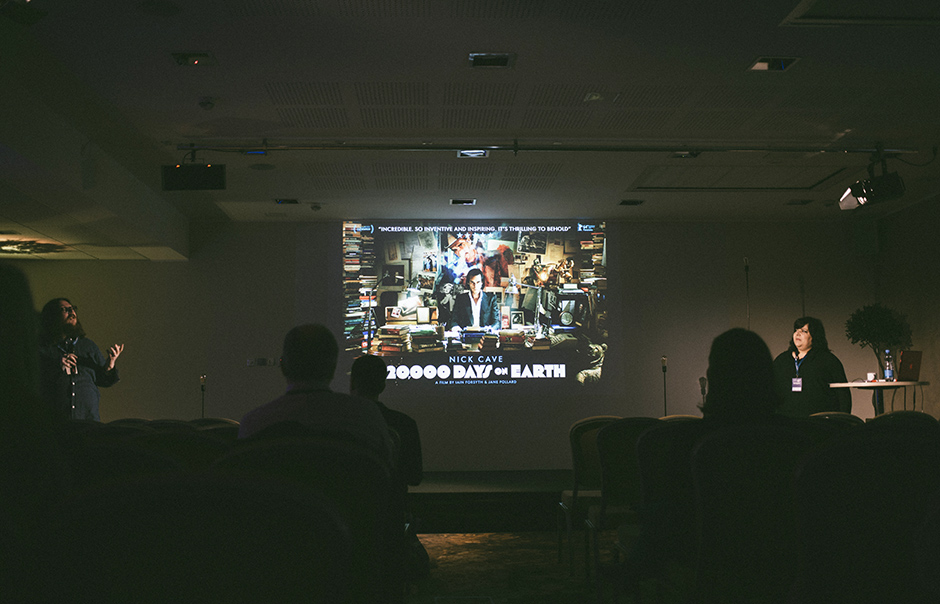
What and whom did TMW start working with back in 2009?
Our fist supporter was in fact the Capital of Culture Foundation in 2009. Being a completely new initiative in Estonia, they had the freedom to support a new way of thinking. They made a conscious decision to support innovation in the creative sector, not just the huge state supported institutions like opera, orchestras and state theatres. With this backing until 2011, we were able to get ourselves off the ground. By then we were already able to show some results for Estonian music export as well.
I think we can say we have played a role in offering musicians, individuals, citizens to have more faith in being able to make difference in their own career and future. It is a large mental shift: from waiting for someone to offer something to you, to standing up to work towards the kind of future, life and career you want to have. That is the meaning of liberal democracy to me – everyone’s individual right to shape their own future. I believe we have been able to bring some of that thinking to Estonian creative sector. Courage to dream big and take action. Every city in the world can be transformed if their citizens feel empowered to change things. The key is in peoples’ mentality. Making change in peoples’ pattern of thinking is the hardest challenge to tackle.
In other interviews you mentioned that the state covers 35% of the costs of the festival. How does it affect the festival activities? Why did the government start support TMW?
When we started, we did not have much support, in fact, it was the Capital of Culture, then Skype office in Tallinn, Nordic Hotel Forum and one person, Ragnar Siil at the Ministry of Culture were one of the few. These people in these institutions will always be very important to us. Their belief helped us to get off the ground when we still had no results to show. They took a leap of faith together with us and I’ll be forever grateful to them for it. By 2011 we already had wider international recognition and some actual results to back up of story, so we were impossible to ignore. And we managed to get support from Ministry of Culture, Ministry of Economy, Enterprise Estonia / the Tourist Board.
When I look at how we work with ministries, the Tourist Board or the City of Tallinn today, then in a way we offer a certain type of service to each one of them – we are a tool for achieving certain types of goals. To Ministry of Culture we offer more opportunities to Estonian musicians, to EAS / Enterprise Estonia we offer results to Estonian music exports, to Tourist Board we offer marketing activities to promote Estonia as an attractive tourism destination, to City of Tallinn we offer both, promoting the city and offering free events and inclusion to the citizens. In general, we see TMW as a tool for change, a tool to enhance collaboration, creative thinking and internationalization.
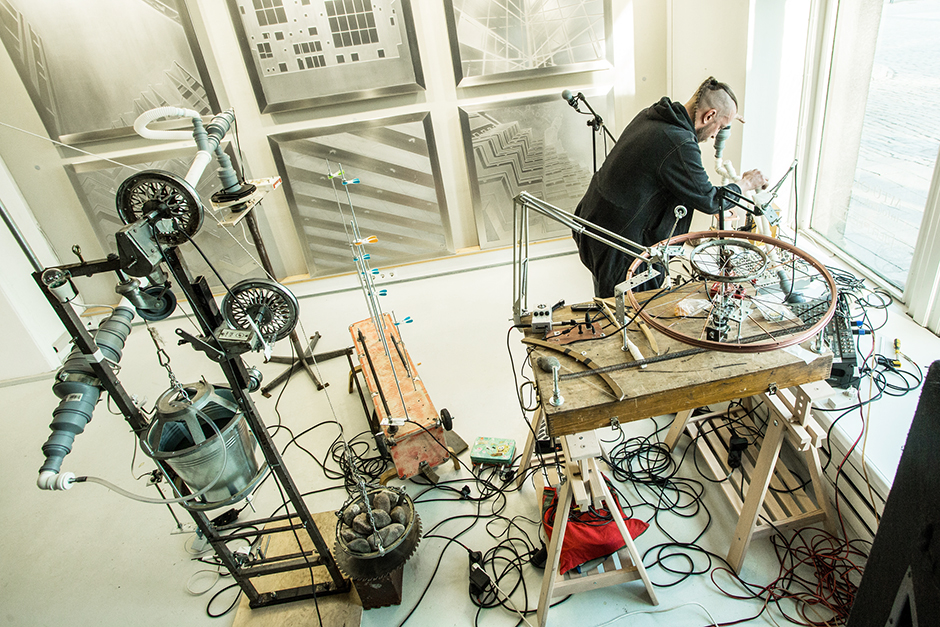
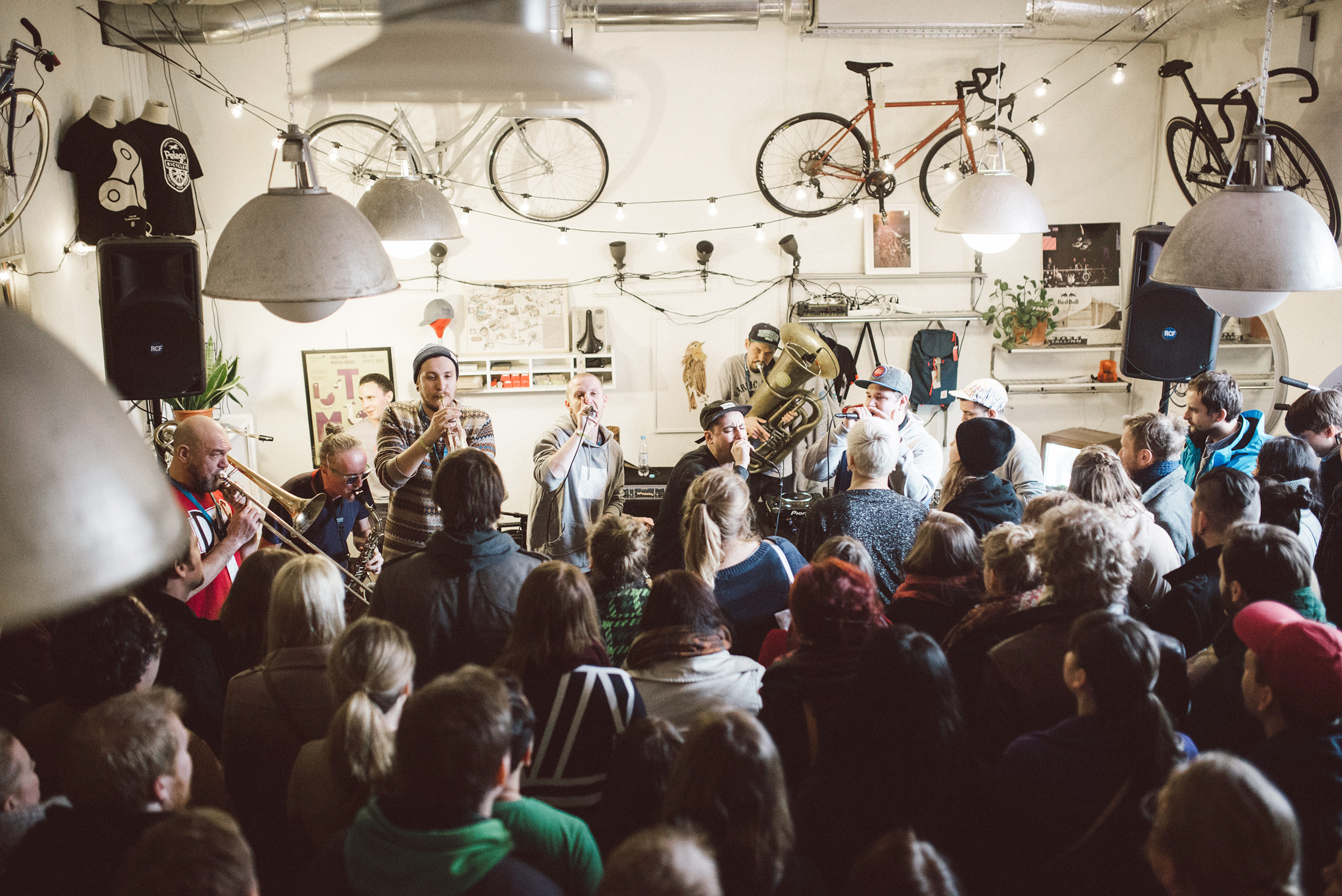
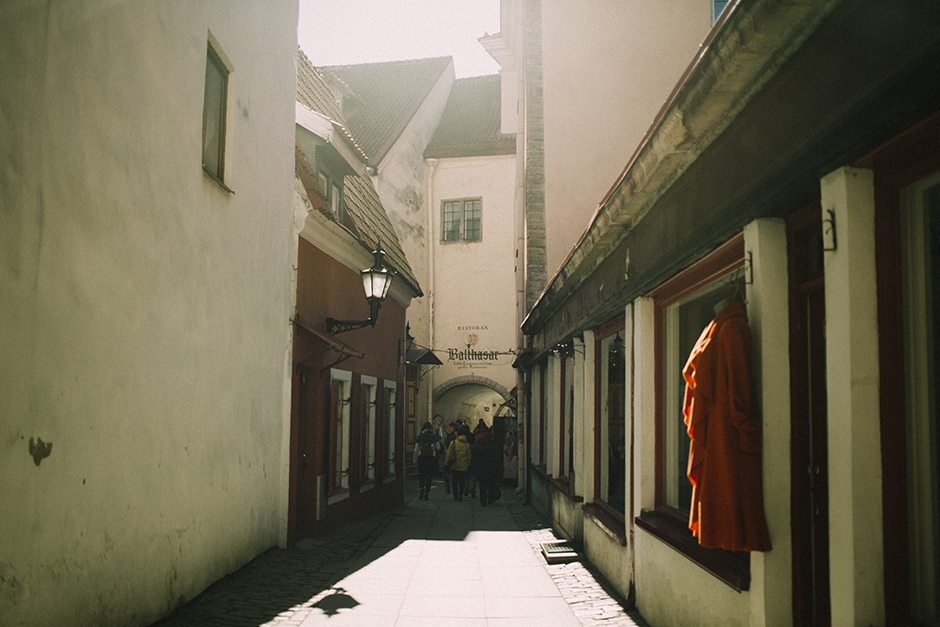
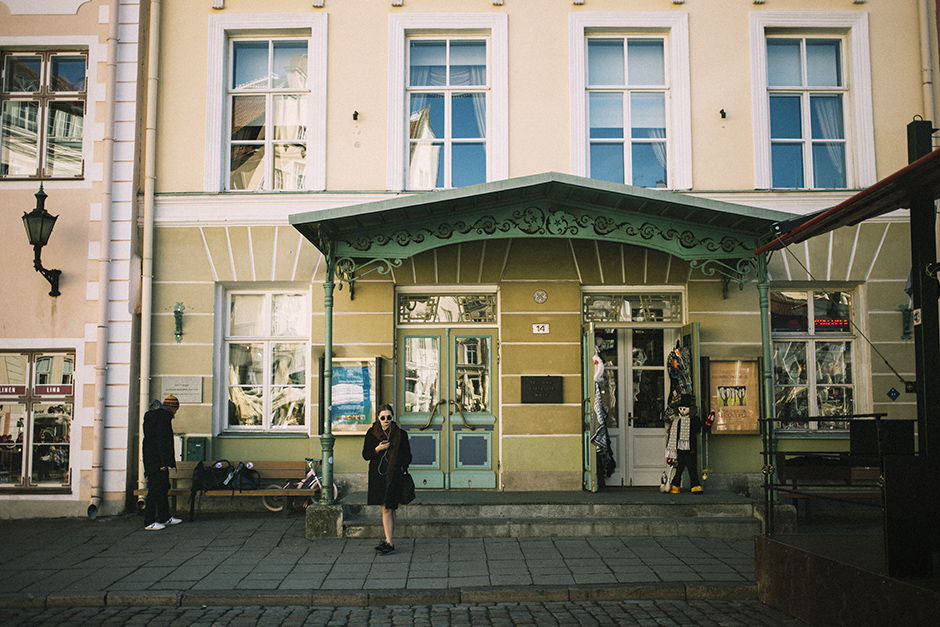
You often mention the music democracy concept. Could you please specify it? How do you imply it in TMW and what effects has it already had?
We are strong believers in the fact that all music genres are equally valuable forms of artistic self-expression. The value in music should not be looked at only through the lens of academic music education. Of course, we need to cherish the virtuoso element of musicianship, but that is just only one fraction of this art form. I think TMW is quite unique in its determination to include absolutely all music genres in the programming – from techno, hip-hop, metal and punk to jazz, folk and classical composition. An open-minded audience will always find interest in the diversity. And this has proven itself over and over. Different artists find completely new type of fans, folk artists get bookings to rock festivals, jazz artists to classical music festivals, composers get deals with indie publishers etc. I think people in general listen to music also differently from how they used to – it’s not so much about your 10 favourite artists anymore, it’s more about the diverse selection, offered to you via streaming services like Spotify, Deezer of Apple Music. While the listeners’ habits are changing, so should music festivals and the way we offer and present music. Good curatorship and programming at the same time will never go out of fashion, in fact it’s needed even more.
Is creative industry capable of solving social and economic problems?
Last year we had a complete subprogramme titled Creativity for Change Forum, this year the whole conference is carrying a title Creative Impact. There is clearly two sides to our conference topics – one is to discuss the issues to do with the music industry developments itself, the other side is to analyze, what is our impact in the society. As a festival we see ourselves as a kind of a soft power communication tool. We are able to share vision and values. First of all a very clear impact to a country is to help promote the country and the city internationally through its creative brands. In case of Estonia, for example we already see how the type of tourists that arrive in Tallinn is starting to be more varied – it’s not just the middle aged couples arriving to see the medieval old town, it’s more and more also younger people, coming here to check out bars, music clubs, food scene and design shopping. The creative content that we make and promote is a reason to be interested in us. In more general terms we can promote an open approach towards internationalization, open dialogue and collaboration. It’s a change in people’s behavior – their networking skills, their confidence, their network of international contacts. Simple human behavior factors which are much more important than we sometimes realize. These will eventually play a big role if we really want to attract international interest and work on a global market.
«The type of tourists that arrive in Tallinn is starting to be more varied – it’s not just the middle aged couples arriving to see the medieval old town, it’s more and more also younger people»
Last year about quarter of thousand bands performed on TMW and turned the experience of a listener into occasional trip. Do you plan to grow dimensions of the festival in 2017?
We have confirmed 237 artists from 33 countries by now, there might be some additions to it, but growing the amount of artists in programme is definitely not a goal. The way we do plan to grow though is constantly thinking of new ways how we use the city as a playground. Last year we took the courage to bring programming also outdoors and it worked perfectly. Indeed, the weather in March is tricky in Tallinn, but with the right kind of colourful scarfs and hats, some warm soup and hot chocolate, any weather feels right. So we will dive into exploring the city properly this time. We plan to give new life to Tallinn’s railway station and the Baltijaam Pavilion surroundings with visuals, lights and installations; we see how we can build stages in deserted garages and hidden part of town. We like this idea that the city is ours and we can constantly reshape and give it new meaning and usage.
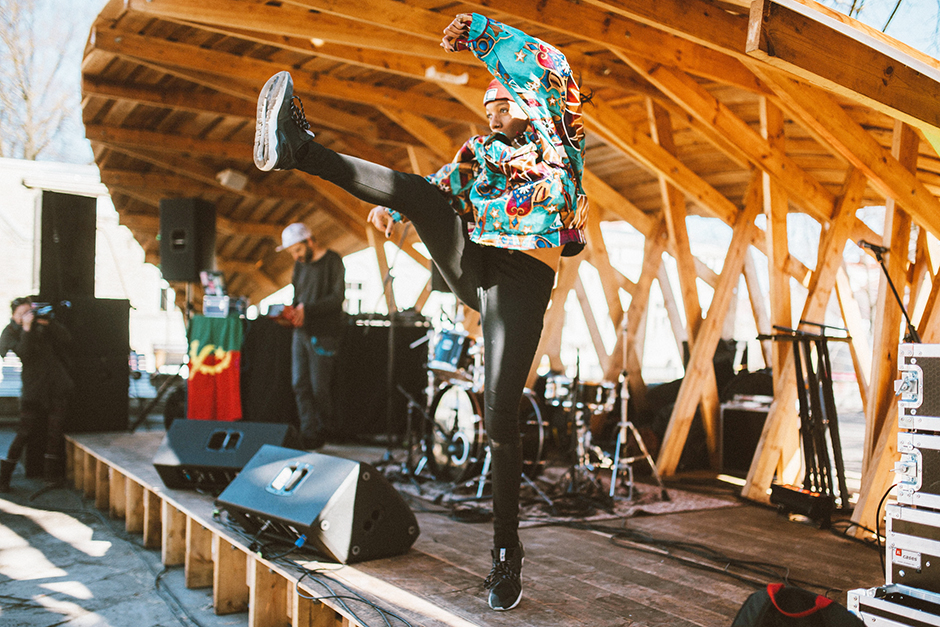
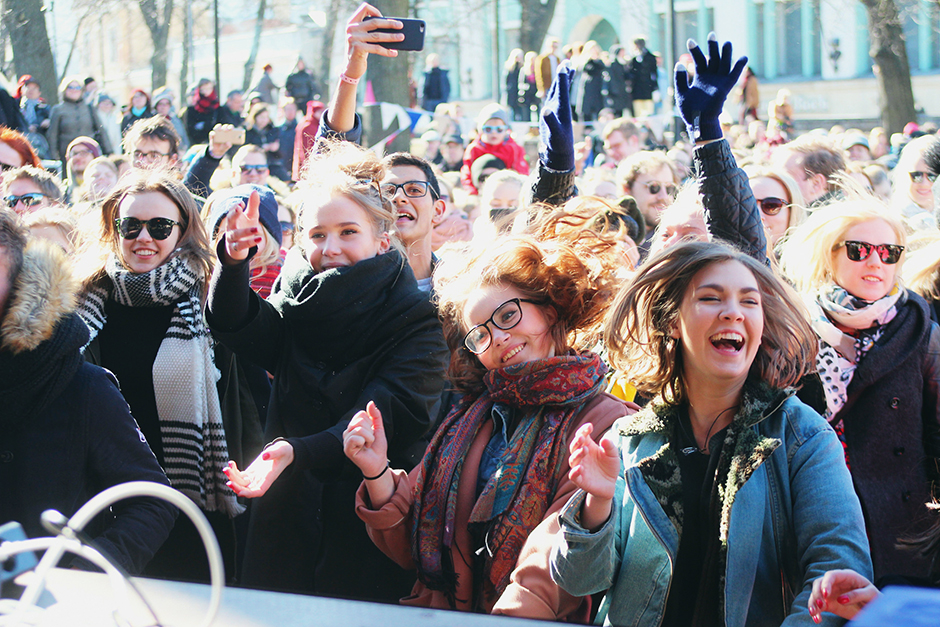
Last year there were many bands with world music flavours: Orwah Saleh and his Syrian lute, Israeli band Fula Express with African percussions etc. On your opinion, how to avoid the situations when such bands just become a thing, an exotic imported fruit in the music industry?
We love diversity and we love different cultures and forms of self-expression. In context of TMW, it’s a celebration of different backgrounds and cultures, not to be treated as museum objects or national relics, but real alive cultural expression. We also like when artists find a way to make their cultural heritage as part of their own individual art form. Estonian artists like Maarja Nuut and Trad.Attack! are perfect examples of this – taking the Estonian music tradition, and making unique original contemporary music with it. We use no artist as a piece of exotic decoration, we celebrate uniqueness and we respect cultural traditions. Nevertheless, nothing should be set in stone, traditions are here to be cherished and remixed, made our own, constantly reinvented.
«Every city in the world can be transformed if their citizens feel empowered to change things»
Who should participate in organizational team in order to cover such a wide range of music tastes?
Our music programming team consists of around 40 music promoters, festivals and specialists in their own scene. We have included basically all key music organizations into making this happen. You are right, there is no such person who would know each of these scenes so thoroughly, to put this together in such variety. So we use all knowledge and expertise there is in Estonia for that, we even team up with partners from abroad – like Positivus Festival, Tuska Festival (metal) in Finland, Nonclassical record label (UK) etc. The team consists of the organizers of Weekend Festival (EDM dance) to Jazzkaar, the oldest and most respected jazz festival in the Baltics. We are super proud of this team and thankful for their contribution.
Speaking about the team in general, for the first 7 years the festival was mainly run on volunteer and freelance basis, now finally, on our 8th year, we are super happy to have a brilliant core team of seven bright people working on it annually, along with other concerts, smaller festivals and events that we organize. For the time of the festival our team grows significantly of course up to 70 people together with the programme and logistics team and up to several hundred together with volunteers. It’s a huge endeavour and joint effort of many like-minded people. Something like this can only take place if there are different partners and stake-holders, many companies and organizations who contribute.
Last summer you visited FSP in Belarus. Please tell about your impressions. What did surprise you the most?
The Freaky Summer Party festival was absolutely brilliant! It felt like an oasis of like-minded people and ideas within the city. I loved the design, the programming and the thinking behind it. The whole festival area was designed with such care and attention to detail. There was also this underlying atmosphere of openness and curiosity around in the festival site, which was such a beautiful breath of fresh air. It was an interesting contrast – at that weekend, the city of Minsk seemed to be quite empty – large squares and boulevards with little traffic. And then this super cozy and friendly festival sight, buzzing with good ideas, music and food. I’ve met so many amazing people from Belarus and we’ve seen some amazing music from there, Super Besse being of course such a great success story. I think there is a lot of great creative potential is Belarus, it’s very important that the creative community holds together, collaborates more and more and supports each others initiatives. This general feeling of things, being possible if you join forces, can make a huge difference.
«We like this idea that the city is ours and we can constantly reshape and give it new meaning and usage»
You have been in promotion business for more than 15 years and in TMW for 9 years. How has it influenced you as a person and as a professional?
I started in music industry in 2000, so indeed, it is already 17 years in total by now. I think in any form of business and industry you need to constantly re-invent yourself to be able to have a meaningful career – to continuously be useful, and to continuously to be fulfilled.
It’s something much more for me now – not just about music industry itself, it more about how to use music and creativity as a tool to make change in the whole country, in the society. So – even though I have worked in music industry basically all my grown-up life, it has never been the same job. The nature and the impact of the job have changed dramatically.
Running an international event like TMW requires being able to work with some of the most competent people and brands in the country – both in collaborating with brands like Telia or Nordea Bank, or to be involved in strategy and policy making on the state level. It’s a job of a lobbyist, communication expert, export and brand developer and crisis management all rolled into one. It’s literally impossible to get bored in this job as it evolves exactly with the speed and magnitude of how you are able to evolve as an individual yourself.
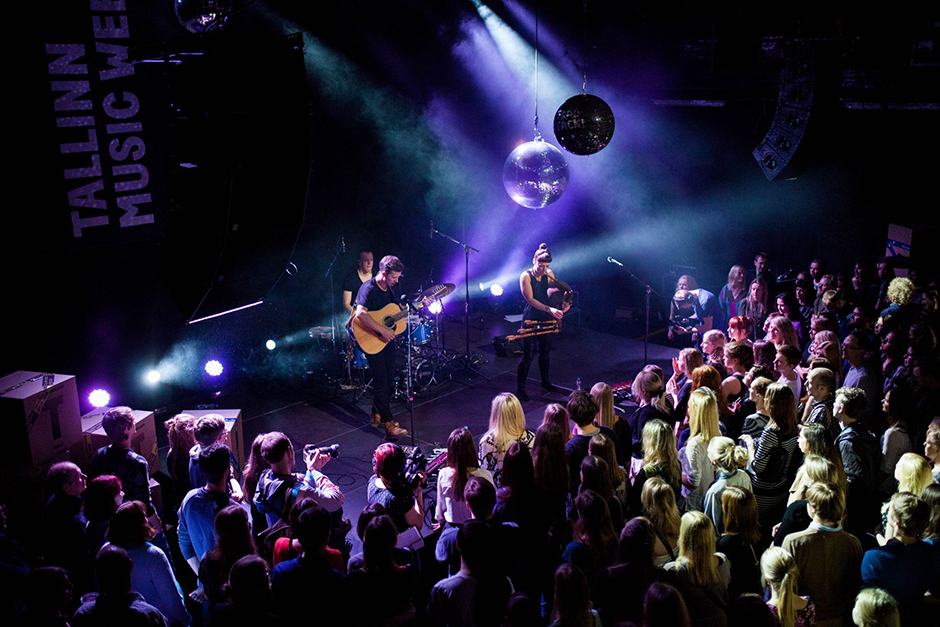
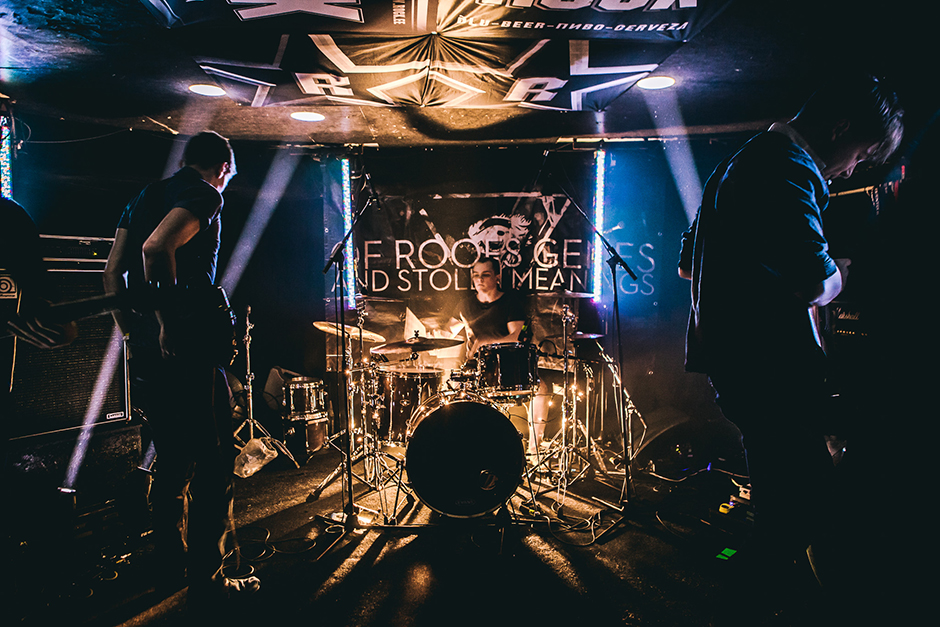
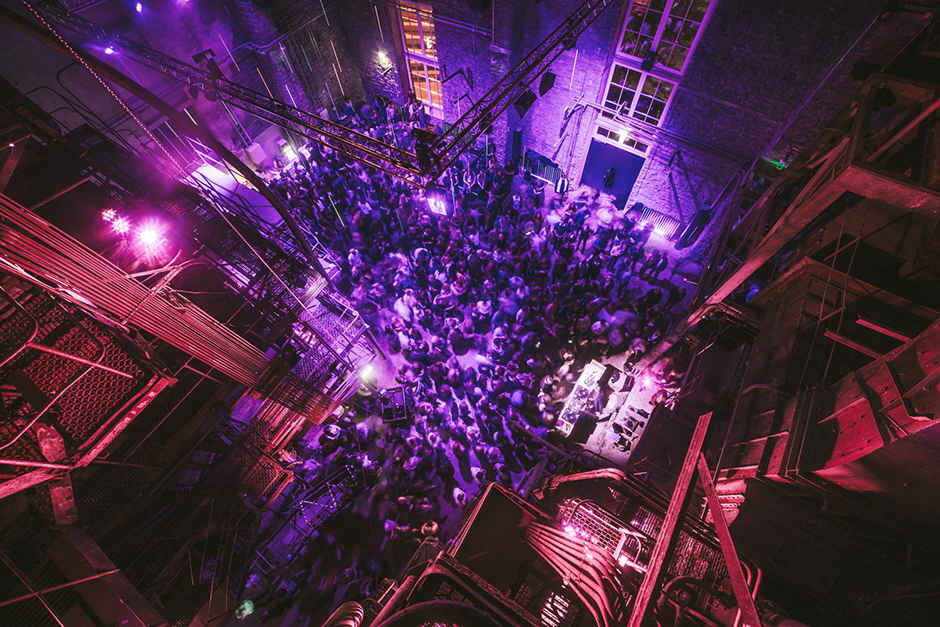
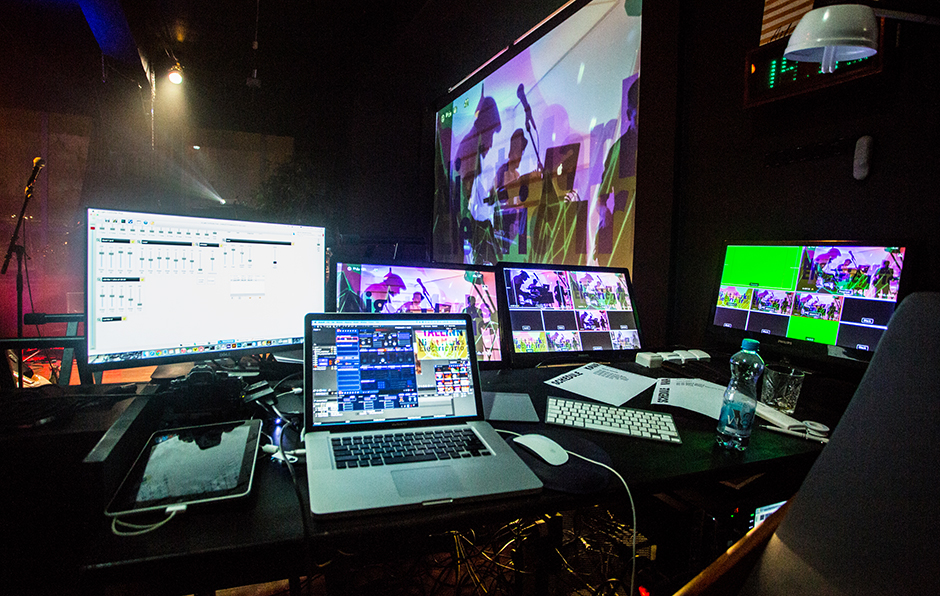
You have a wonderful dog Pipar, who even has her personal e-mail on festival corporate domain. What duties does she have?
Her main duty is to be our “go and relax” coach. Her important tasks of a day involve taking me to long walks. So she is a psychologist, a trainer and a coach. Quite a responsibility for a 3-year old.
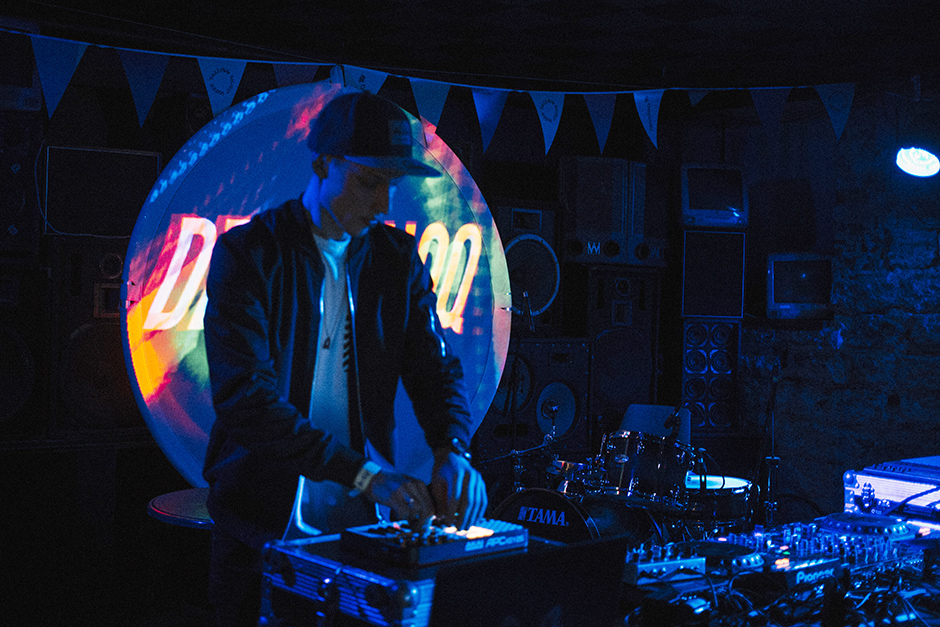
УНП 191751509
Read more:
10 актуальных квір-музыкаў
Arca, Terre Thaemlitz, Rrose і яшчэ сем артыстаў, якія выказваюцца на ЛГБТ-тэмы ў сваёй творчасцi
Як прыйсці ў норму пасля сутак?
Клапатлівыя парады ад лекараў і псіхатэрапеўтаў для тых, хто «адкінуўся».
On main page:
Maria Gulina: art management from eco-art to socially engaged practice
A journey from local environmental workshops to art management and working with socially engaged photography in an international gallery.
Emil Zenko: "It's satisfying to learn that someone bought your vinyl without having a record player"
The conversation about filming in a Belarusian village, the kitchen of ideas and the search for funds.
Timeline: How Belarus (Doesn’t) Fight Domestic Violence
A story about (or no) cooperation between government representatives, NGOs and ordinary people that care.
Why are gay people being detained in Azerbaijan?
Javid Nabiyev speaks on arrests of gay people in Azerbaijan, explains the «fucking solidarity» term and the point of activism.
White innocence: fighting racism in the Netherlands
Joris Hanse, Dutch activist from the Doorbraak, speaks about the Netherlands not matching the stereotypes.
In a wolf's skin
A philosophical audio story about a wolf, people who care for it and people who kill it.